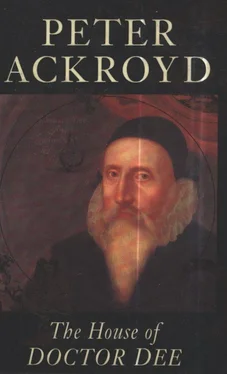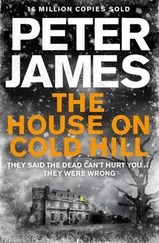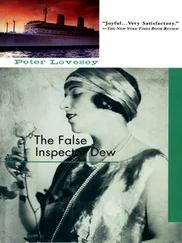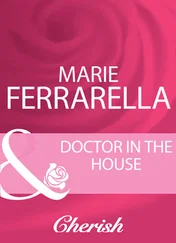Peter Ackroyd - The house of Doctor Dee
Здесь есть возможность читать онлайн «Peter Ackroyd - The house of Doctor Dee» весь текст электронной книги совершенно бесплатно (целиком полную версию без сокращений). В некоторых случаях можно слушать аудио, скачать через торрент в формате fb2 и присутствует краткое содержание. Город: London, Год выпуска: 1993, ISBN: 1993, Жанр: Историческая проза, на английском языке. Описание произведения, (предисловие) а так же отзывы посетителей доступны на портале библиотеки ЛибКат.
- Название:The house of Doctor Dee
- Автор:
- Жанр:
- Год:1993
- Город:London
- ISBN:9780241125007
- Рейтинг книги:5 / 5. Голосов: 1
-
Избранное:Добавить в избранное
- Отзывы:
-
Ваша оценка:
- 100
- 1
- 2
- 3
- 4
- 5
The house of Doctor Dee: краткое содержание, описание и аннотация
Предлагаем к чтению аннотацию, описание, краткое содержание или предисловие (зависит от того, что написал сам автор книги «The house of Doctor Dee»). Если вы не нашли необходимую информацию о книге — напишите в комментариях, мы постараемся отыскать её.
The house of Doctor Dee — читать онлайн бесплатно полную книгу (весь текст) целиком
Ниже представлен текст книги, разбитый по страницам. Система сохранения места последней прочитанной страницы, позволяет с удобством читать онлайн бесплатно книгу «The house of Doctor Dee», без необходимости каждый раз заново искать на чём Вы остановились. Поставьте закладку, и сможете в любой момент перейти на страницу, на которой закончили чтение.
Интервал:
Закладка:
Of course not all is known or can be known, and even of our own kingdom much is lost, yet I have by me here Historia Regum Britanniae, together with various manuscripts concerning the past of Britain collected by Nennius and Geoffrey of Monmouth. I once had a book — I do not know what has become of it because it was taken from me when I was clapped up in the Tower as a conjuror, but I can see it now before me. It was a short, thick old volume with two clasps, printed anno 1517, and it gave some account of the ancient places long buried within this island and now so many lost cities under ground. That wonderful book was stolen, as I say, but the loss is as nothing compared with the general destruction and burning and spoiling of so many notable libraries in the reign of King Henry; the whole stock and store of our past was close to utter extinction, and our antique learning was used to serve the jakes, or scour candlesticks, or rub boots. What I have kept and preserved here are the notable jewels which I have found scattered across the land, so that in this library lies something of the treasure of Britain's antiquity, the everlasting seeds of its continual excellence, the remnants of a once incredible store of the passing excellent work of our forefathers. To Britain's shore once came the giants and, afterwards, those who escaped from the deluge of Atlantis. Their great truths must never be forsaken.
That is why, in order to become a very excellent scholar and a learned man, it is necessary to find the path towards learning through books; otherwise it were as well to be a sophister, a quack or an empiric rather than a philosopher. There are those who say that learning effeminates a man, dims his sight, weakens his brain and engenders a thousand diseases; Aristotle himself tells us, 'Nulla est magna scientia absque mixtura dementiae', which is as much as to say, 'There is no excellent knowledge without mixture of madness'. But I deny even Aristotle in this, since he who has learning holds the flower of the sun, the perfect ruby, the elixir, the magisterium. It is the true stone, the home of the glorified spirit, the virtue of the soul of the world.
Books do not perish like humankind. Of course we commonly see them broken in the haberdasher's shop when only a few months before they lay bound on the stationer's stall; these are not true works, but mere trash and newfangleness for the vulgar. There are thousands of such gewgaws and toys which people have in their chambers, or which they keep upon their shelves, believing that they are precious things, when they are the mere passing follies of the passing time and of no more value than papers gathered up from some dunghill or raked by chance out of the kennel. True books are filled with the power of the understanding which is the inheritance of the ages: you may take up a book in time, but you read it in eternity. Look upon this text here, Ars Notoria, perfected from the Greek by Master Matthew — note how every word signifies the quiddity of the substance, and how every sentence signifies its form. What learning this is (even in a latter and doting age of the world) when every line may reveal how the secret and unknown forms of things are knit up in their originals! Yet this is not for those with mere cabbalistical brains, who see nothing but mysteries and read nothing except to fall upon some revelation; out of one root comes the wild olive as well as the sweet, and these men do nothing more than gape and whisper 'Micma' or 'Fisis' or 'Gohulim' without understanding the meaning of the sacred names.
But I have found the source of all that wisdom. I drink at the true fountain because here I have around me the inheritance of our island. Just as I may contemplate the portrait of Paracelsus upon my wall, and send his image through these pages so that it may be seen as a glimmering light by those who turn their eyes this way — so can I distil the very essence of the books around me and impart it to the world. These volumes will be a continual silent presence not only for me, but for the posterity of many ages. It is vulgarly said and believed that there are spirits who live in private houses and who inhabit old walls or stairs of wood; yet if there is a spirit in this library, it is the spirit of past ages. There are some who mock and condemn me for living within the past, but they are far off the mark; like the navigator who charts his course by the aid of the glistening fixed stars, those who understand past ages do then master the present. Like changeable silk which turned to the sun has many colours, and turned back from the light has none, so does the present day contain all the hues and shades of times long gone which are visible only to one who looks upon them correctly. So I sit here at the great table in the middle of my library room, retired from the multitude and haunts of the world; with my books I am preserved in safety from all follies and assaults, and thus I become more truly myself. I am at peace.
Yet I am not so foolish as to ignore the teaching of the great masters, Pico della Mirandola and Hermes Trismegistus among them, when they assert the following: that to be myself is to be the world, to look into myself is to look into the world, to know myself is to know the world. The human form is more powerful than the sun because it contains the sun, more beautiful than the heavens because it contains the heavens, and he who sees it truly is richer than any king, for he has the entire art and understanding of the earth. No, not my poor mortal body, not this poor shambling thing of fifty years' growth, but the true spiritual body with which I am endowed: it is this which thirsts for learning and rises into glory when I sit among my books.
*
I went into my garden to take some air after the sweet mustiness of my library, and had just walked down towards the edge of the Fleet where herbs grow when I heard noises much like those of a man talking in his sleep. They came from a little enclosure of baked brick framed like the walls of a house, and when I stepped in front of the open side of it I leapt back at the sight of a man in a threadbare black coat unbuttoned and open before his breast. He wore a filthy foul cloth on his head, being cut for the purpose with a narrow place to put out his face. He raised his head and for a moment looked at me, without his eyes blinking.
'Oh master,' he cried, 'I was resting myself by the riverside here. You seem a gentleman of good worship, so pity me.' I said nothing, but with my foot touched the felt hat that he had left upon the ground, moving it towards him. 'I have the grievous and painful disease called the falling sickness,' he continued. 'I fell down on my backside, and here I have lain all the night.'
'You have no disease,' I replied, 'that could not be cured at the whipping pillar.'
'Oh dear God, sir, I feel as if I were born there since I am used so badly by all. My name is Philip Jennings, and I have had the falling sickness eight years. I can get no remedy for the same, since I have it by kind. My father had it before me.' He interested me a little more now; I had once read a very learned work upon the nature of diseases which we inherit. 'Give me a penny for God's sake, sir, to keep me a true man.'
'Surely you are not brought to so low a sail,' I replied, stepping back at the stench of him, 'that you cannot steer your way to a charitable church door?'
'Oh, I know all the churches. I know St Stephen in Coleman Street, St Martin's at Ludgate, St Leonard's in Foster Lane, but all turn me away with no more than a flea in my ear.'
'And no doubt they made threats to burn you through the ear also? Is that not their way?'
'Well you know, sir, these priests have heads higher than their hats. The greatest clerks are not the wisest men.'
Читать дальшеИнтервал:
Закладка:
Похожие книги на «The house of Doctor Dee»
Представляем Вашему вниманию похожие книги на «The house of Doctor Dee» списком для выбора. Мы отобрали схожую по названию и смыслу литературу в надежде предоставить читателям больше вариантов отыскать новые, интересные, ещё непрочитанные произведения.
Обсуждение, отзывы о книге «The house of Doctor Dee» и просто собственные мнения читателей. Оставьте ваши комментарии, напишите, что Вы думаете о произведении, его смысле или главных героях. Укажите что конкретно понравилось, а что нет, и почему Вы так считаете.












